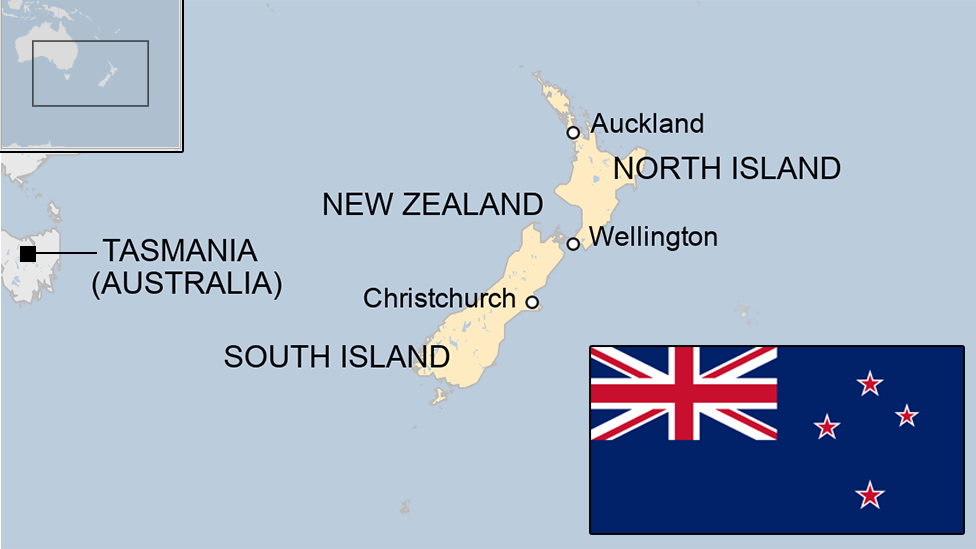Australia country profile
- Published
This page is no longer being updated. It was last updated on 14 April 2023
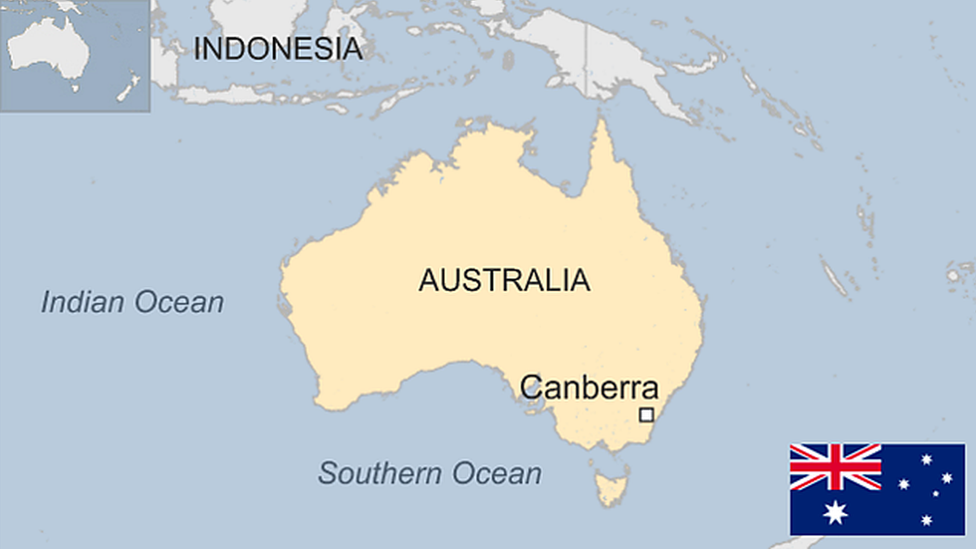
Australia ranks as one of the best countries to live in the world by international comparisons of wealth, education, health and quality of life. The sixth-largest country by land mass, its population is comparatively small with most people living around the eastern and south-eastern coastlines.
The country's first inhabitants, the Aboriginal people, are believed to have migrated from Asia tens of thousands of years before the arrival of British settlers in 1788. They now make up less than 3% of Australia's population.
Years of mass immigration after World War Two have led to sweeping demographic changes, making modern Australia one of the world's most multicultural countries. But migration continues to be a sensitive issue politically.
In shaping its foreign and economic policy, Australia first looked to Europe and the US but in the last few decades has developed stronger ties with Asia. It has acted as peacekeeper in the region sending missions to Solomon Islands, East Timor and Papua New Guinea.
Although Australia remains part of the Commonwealth, the future role of the monarchy has been a recurring issue in politics. An ageing population, pressure on infrastructure, and environmental concerns such as climate change are some of the long-term challenges facing the country.
Read more country profiles, external - Profiles by BBC Monitoring, external
COMMONWEALTH OF AUSTRALIA: FACTS
Capital: Canberra
Area: 7,692,024 sq km
Population: 26 million
Language: English
Life expectancy: 81 years (men) 85 years (women)
LEADERS
Monarch: King Charles III, represented by a governor-general
Prime Minister: Anthony Albanese
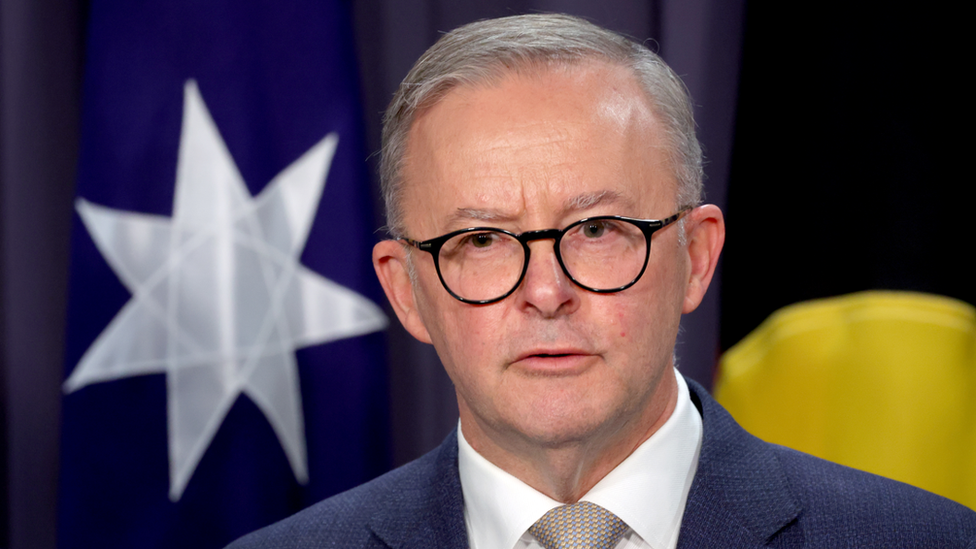
Labor leader Albanese beat Prime Minister Scott Morrison at the May 2022 election, ending nine years of rule by the centre-right Liberal Party. Climate change played a major role in the election, with a surge in support for candidates wanting urgent action.
Mr Albanese also has to balance the relationship with China, one of Australia's main trading partners, which is making a bid to boost its influence in the southern Pacific.
MEDIA
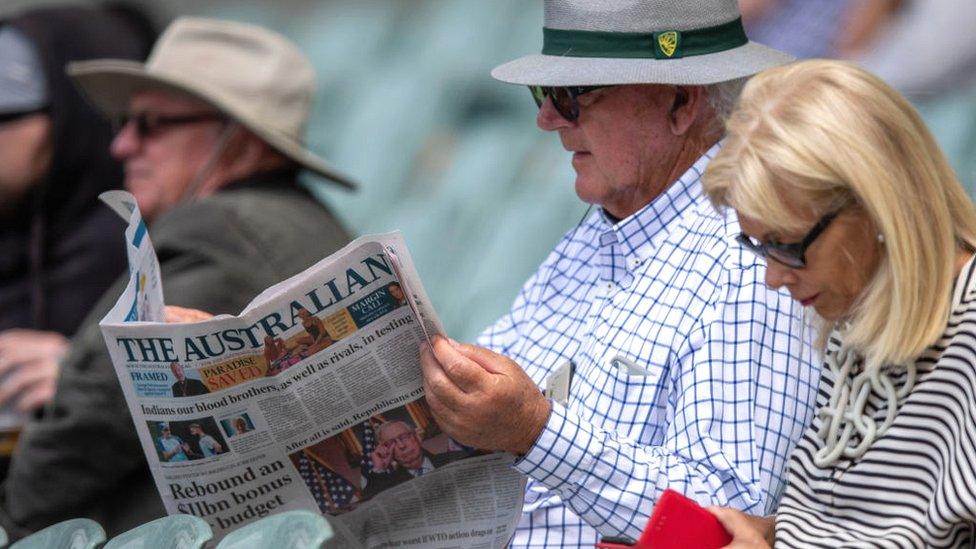
Media ownership in Austrlia is highly concentrated
Australia's media scene is creatively, technologically and economically advanced. There is a tradition of public broadcasting but privately-owned TV and radio enjoy the lion's share of viewing and listening.
Media ownership is highly concentrated. Leading groups include News Corp Australia, Seven West Media and Fairfax Media-Nine Entertainment.
TIMELINE
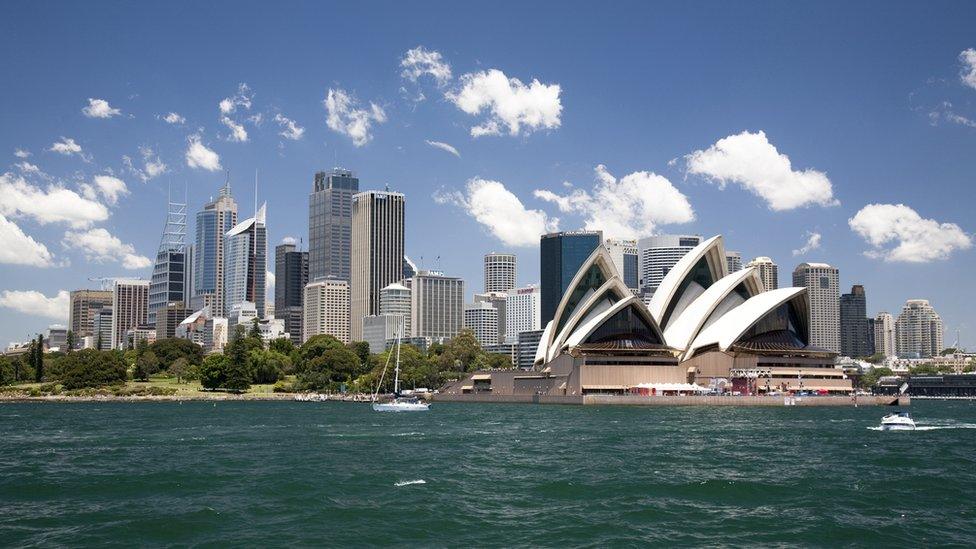
Sydney Opera House is widely regarded as one of the world's most distinctive buildings and a masterpiece of 20th Century architecture
Some key dates in Australia's history:
40,000 BC - The first Aboriginal people arrive from southeast Asia. By 20,000 BC they have spread throughout the mainland and Tasmania.
1770 - Captain James Cook charts the east coast in HM Endeavour and claims it as a British possession, naming it "New South Wales".
1788 - Captain Arthur Phillip arrives with a British fleet of 11 vessels carrying nearly 800 convicts and founds a penal settlement at Sydney. The Aboriginal population at the time is thought to number several hundred thousand.
1829 - Colony of Western Australia established at Perth.
1836 - South Australia established, with Adelaide as its capital.
1850s - Gold is found at several locations leading to gold rushes throughout the decade. The population rises rapidly to over one million. An influx of Chinese leads to restrictions on their entry. Aborigines are treated very badly and their numbers collapse.
1856 - Australia becomes the first country to introduce the secret ballot for elections.
1877 - Australia and England play the first-ever cricket Test match in Melbourne.
1901 - The country is unified as the Commonwealth of Australia. An immigration restriction act puts a brake on non-white immigration.
1911 - Canberra is founded and designated as the capital.
1914-18 - Australia commits hundreds of thousands of troops to the British war effort during World War One. Their participation in the Gallipoli campaign leads to heavy casualties, and cements a sense of national identity.
1939 - Australia follows Britain's lead and declares war on Nazi Germany.
1941 - The US declares war on Japan. Australia turns to the US for help in its defence after the Japanese take Singapore. Australia allows the US to use it as a base for the Pacific war.
1948 - Australia launches a scheme for mass immigration from Europe. More than two million people arrive over the next 30 years, about one-third of them from Britain, and hundreds of thousands from Italy, Greece and Germany.
1950 - Australia commits troops to UN forces in the Korean war.
1956 - Olympic Games held in Melbourne.
1965 - Australia commits troops to the US war effort in Vietnam.
1973 - White Australia policy ends. Following decades see Australia's demography and culture transformed as a result of immigration, mostly from Asia.
1975 - Australian constitutional crisis. Prime Minister Gough Whitlam's government is plagued by resignations and the blocking of its budget by the upper house of the parliament. In an unprecedented move, the Queen's representative, governor-general Sir John Kerr, dismisses the government.
1994-2003 - Australian peacekeepers play a key role in brokering peace in a long-running conflict in Bougainville, an island province of Papua New Guinea. An estimated 15,000 people died and up to 70,000 people were displaced.
1999 - Australia leads intervention force in East Timor to counter pro-Indonesia militia violence after territory's independence vote.
Referendum on making Australia a republic defeated, with 55% voting to retain the status quo.
2000 - Australia hosts the Sydney Olympics
2002 - In Bali, 88 Australians are among 202 people killed when bombs go off in two nightclubs. The attacks are claimed by al-Qaeda.
2006 - Australia and East Timor sign a deal to divide billions of dollars in expected revenues from oil and gas deposits in the Timor Sea. Under the agreement, discussions on a disputed maritime boundary are postponed.
Australian troops spearhead peacekeeping forces in the Solomon Islands and East Timor after unrest in both countries.
2008 - Government makes a formal apology for past wrongs committed against the indigenous Aboriginal population.
2014 - Man Haron Monis, an Islamist gunman, takes 18 people hostage in Sydney cafe; he and two hostages die when police storm premises.
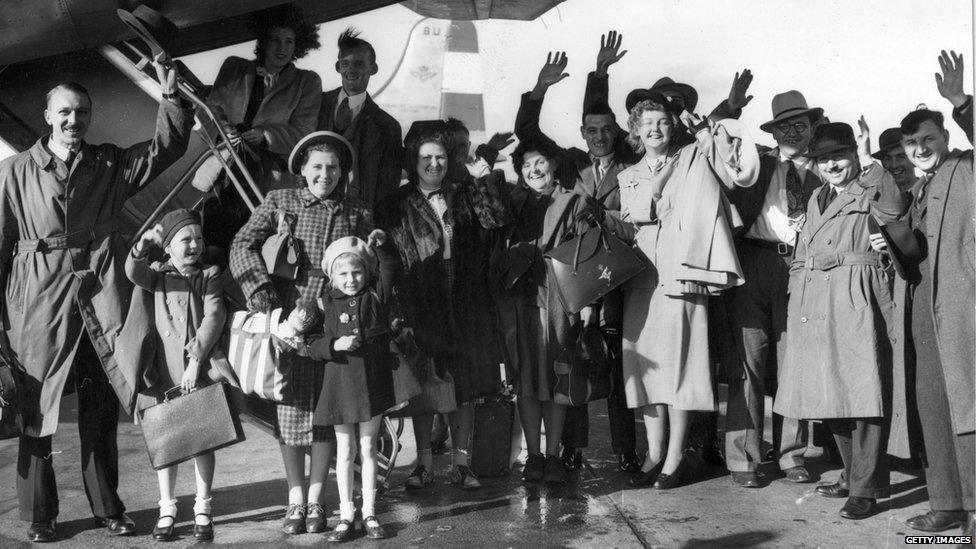
"White Australia" policies restricted non-white immigration in the first half of the 20th Century
Related topics
- Published19 May 2023
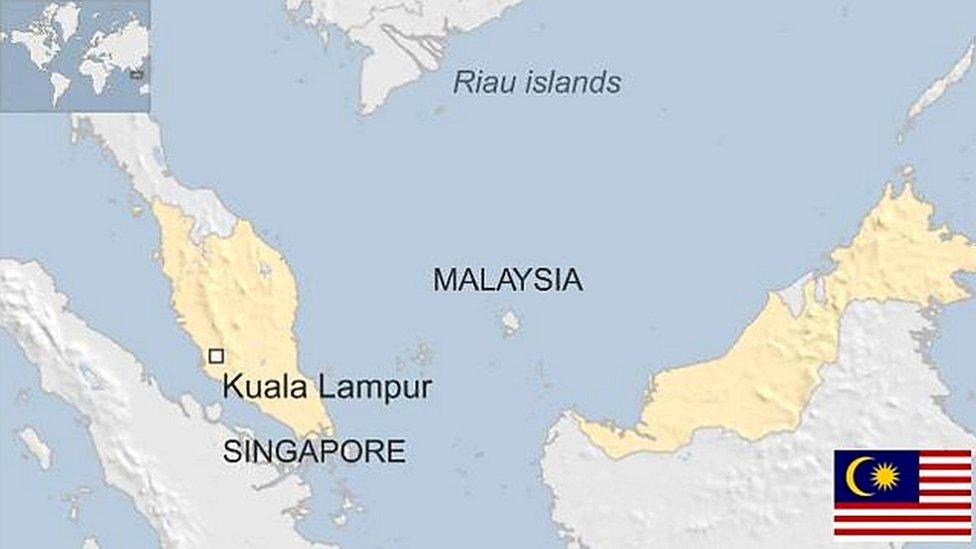
- Published4 September 2023
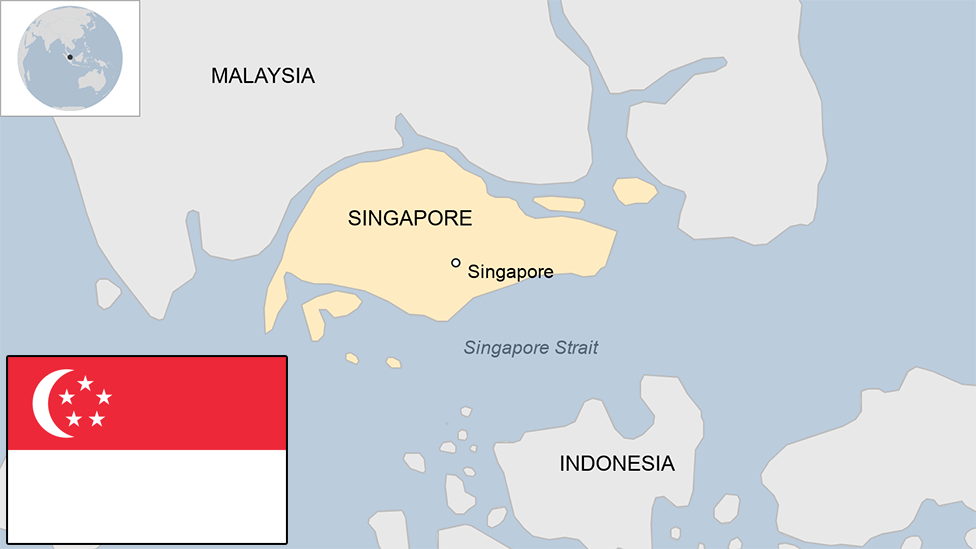
- Published25 October 2024
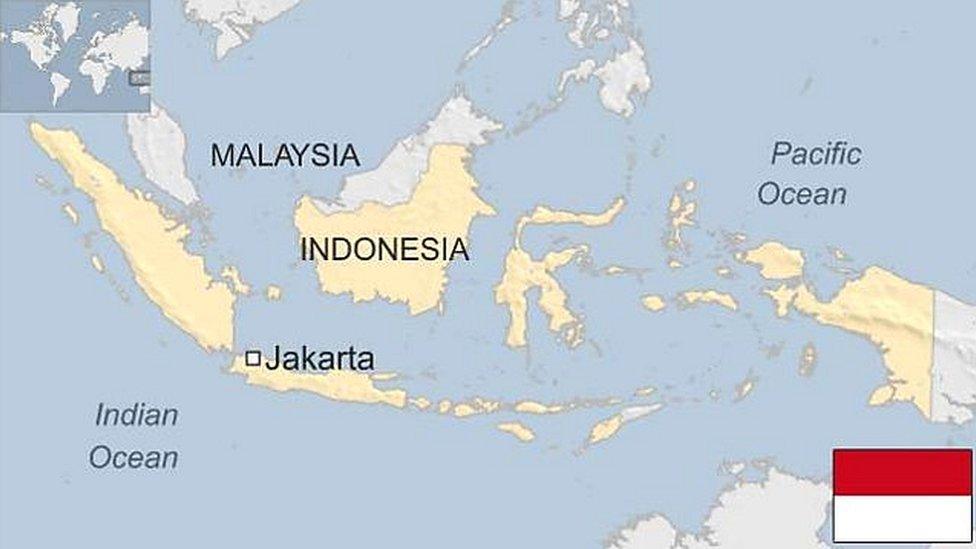
- Published5 June 2023
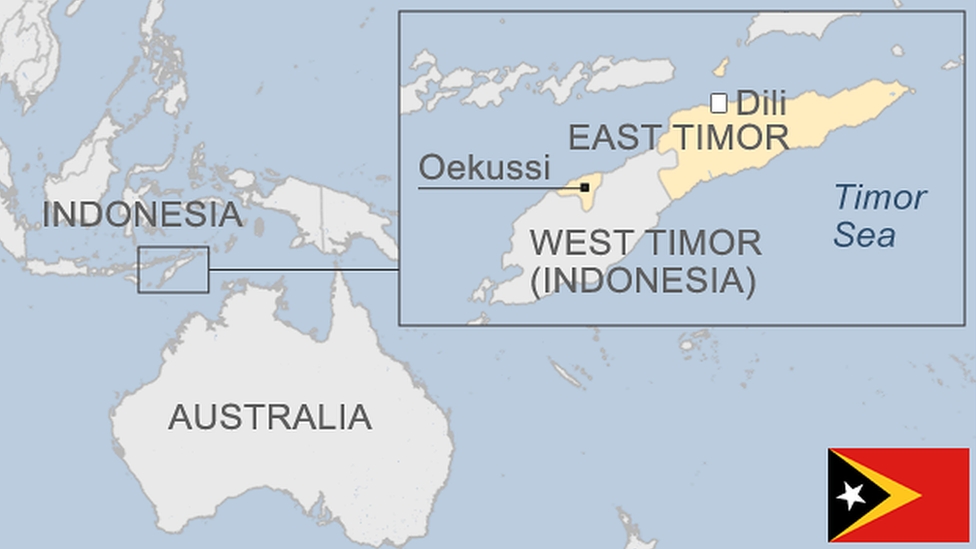
- Published19 December 2023
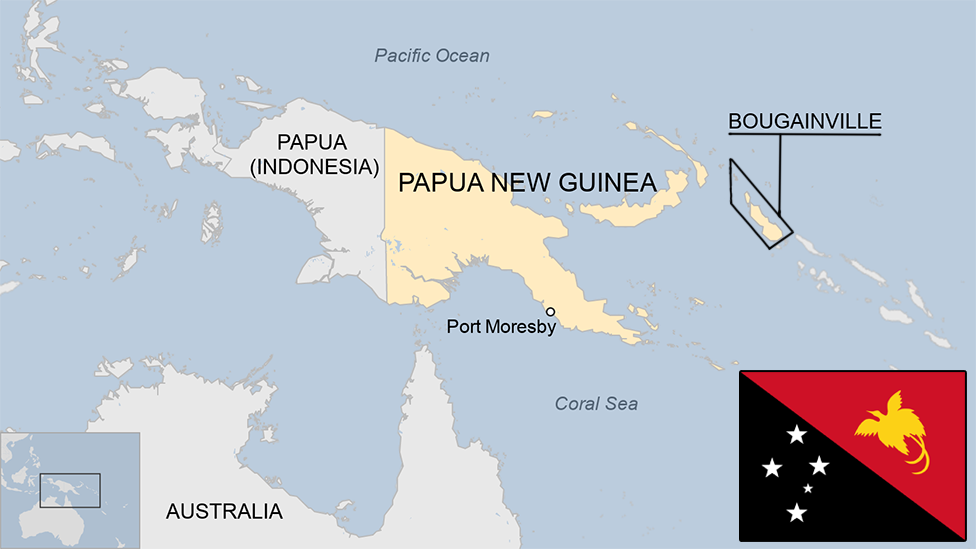
- Published21 May 2024
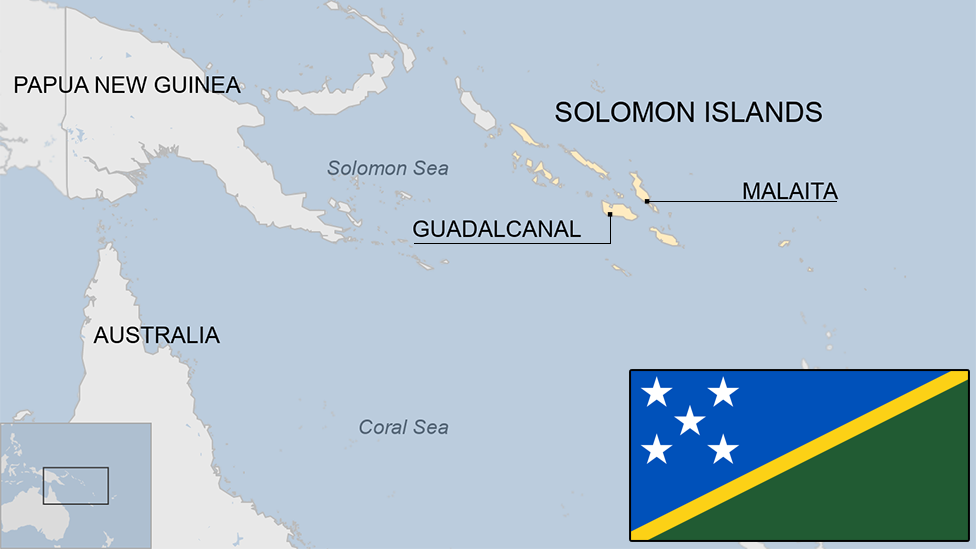
- Published22 August 2023
